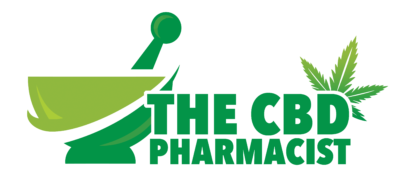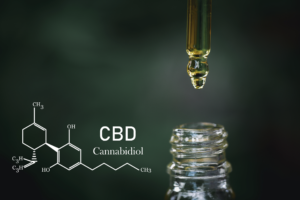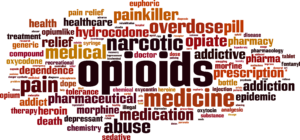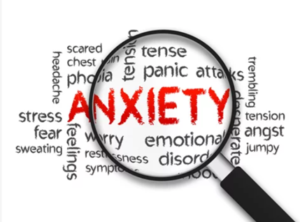What is CBD?
CBD is short for Cannabidiol, which is plant derived substance that comes from the Hemp plant. It is actually one of 118 different cannabinoids that are found in the hemp plant, and the number keeps growing! CBD affects our own internal cannabinoid receptors which are a part of the Endocannabinoid System (ECS), whose main job is to oversee all our other body systems and keep them in a state of balance, or homeostasis.
CBD is a plant is a plant derived product and is also called by its more proper name “phytocannabinoid”, or plant-based cannabinoid.
What is the Endocannabinoid System?
The ECS is a system of highly refined receptors that are located throughout the human body. We can often determine the importance of a system by the number of receptors it has, in which case the ECS would rank right near the top!
The ECS is widely held to be the 12th system in our body, similar to the digestive, pulmonary, and endocrine systems. It is made of up receptors called CB1 and CB2. CB1 receptors are located primarily in the brain and CB2 are typically found in the immune system. The endocannabinoids (cannabinoids made by the body) that affect these receptors are called 2-Arachyldonoylglycerol (2-AG) and Anandamide.
Anandamide is often called the “bliss” molecule and is responsible for the “high” you feel after a long, vigorous workout.
Will CBD make me high?
This is probably the most common question in regards to CBD, and with good reason! CBD comes from the Hemp plant which is part of the Cannabis family, same as Marijuana. Hemp looks like and smells like Marijuana, so it would be easy to get the two confused.
The reason that marijuana makes you feel a high is because of the THC (Tetrahydrocannabinol). The hemp plant, in order to be legal in the United States, needs to have a very low percentage of THC (0.3% or less) while the marijuana plant averages over 20% THC.
With the amount of THC in your bottle of CBD, it would be impossible for you to develop a psychoactive effect similar to marijuana. And CBD by itself has a host of positive effects on your body, but does not cause any effects like THC.
Does CBD really work?
At times it may seem like the CBD is shrouded in mystery, with the promise to cure everything from cancer to insomnia. Anecdotal reports abound for the positive and negative effects of this phytocannabinoid, and it is enough to scare anyone away.
But the cool thing is yes, we know that CBD works. We know that it affects the enzymes responsible for metabolizing our endocannabinoids (MAGL and FAAH) and increases the amount of time that Anandamide and 2-AG work in the body. CBD also affects a host of other cannabinoid and g-protein coupled receptors (big words, but explained in better detail in my book). The question is, does CBD produce enough of an effect for you to feel it? The majority of the time this answer is yes, but for how many people is the effect worth the cost and your time? That is harder to quantify and obviously only you can answer that for sure.
What about drug interactions?
Yes, drug interactions do exist with CBD, so we need to proceed with caution. CBD is metabolized by the CYT P450 pathway in the liver, which is responsible for deactivating 70% of the drugs we ingest. Now, the amount of interaction and the subsequent affects are where it gets tricky. For the most part, CBD binds itself to these liver enzymes which slow the metabolism of the medication. Usually this results in higher levels of the prescription drug which can lead to an increase in side effects.
There are certain drugs that we are more careful when combining with CBD such as warfarin and amiodarone. For a complete list of drugs affected by CBD, visit the website awakentocbd.com for a link and more information.
What is in CBD oil?
CBD comes in 3 different forms which I will help clarify for you.
- CBD isolate- only contains CBD.
- Broad Spectrum- contains all parts of the plant, but not including THC. The manufacturer goes thru an extra process to remove the THC from the hemp.
- Full Spectrum- contains all parts of the plan plus the legal amount of THC (0.3% or less).
The hemp plant is really amazing. It has been grown for thousands of years because of the usefulness of the fibers of the plant. Hemp has been made into clothing, food, jewelry, bricks, rope, and even a car. The fibers are naturally anti-microbial and very strong.
When extracting CBD out of the plant, you also get a host of other vitamins, minerals, terpenes, and flavonoids. Hemp is a multi-purpose plant that has been kept on the sideline in America because of its close relation to marijuana which has prevented it from being studied more closely and used appropriately in our culture.
The broad and full spectrum formulations are thought to work better because all the components of the plant are more effective when given together than apart (this is called the entourage effect). Remember there are over 100 different kinds of CBD in the plant and each one has a slightly different use. We are only scratching the surface at understanding all that the hemp plant can do for our health.
How much should I take and will I feel something right away?
Whoa there pardner, let’s not get ahead of ourselves with two questions! I’ll do my best to parse out an answer in the space we have below but no promises.
Dosing can be a delicate question depending on such factors as age, weight, and liver function. I have attached a dosing chart to my website that goes through this question in more detail. Feel free to click on over!
Most people, for most symptoms, will start out around 25mg per of the CBD oil or capsule. I recommend a “low and slow” to approach for first timers, meaning you start out at 10-12mg per day for 7-10 days before increasing to a full dose (or 25mg). Most people will find the sweet spot in the 40mg-50mg range per day, but you can take a couple of months to get there. Those with more severe symptoms may top out in the 100mg-120mg range, so it has a wide variety of possible effective doses.
The secret is to find the right product, at the right dose, and give it time.
Are there side effects?
Yes there are, but not many, and not very often. Keep in mind that CBD is something we call “biphasic” in how it works. If you take too little, it won’t work, and if you take too much, you experience the law of diminishing returns. I like to compare it to fertilizing your lawn- not enough and the weeds will be rampant and too much will burn out your lawn. This helps to keep you in the sweet spot where CBD works and very few side effects occur.
The biggest issues I have encountered are stomach upset, drowsiness, vivid dreams, and diarrhea. Taking your CBD with food and not before bedtime will help to reduce the worst of these possibilities.
Ok, you made me a believer, now how do I get started?
Once you are a believer, this is the most important question. It’s important to those of us at Awaken to CBD that you are in good hands, and that we will steer you in the right direction. We have (and are developing) a host of services to help you make the best decisions for your product and for your health.
I have developed a CBD review process that evaluates over 15 different factors when making your decision. We also have our own brand (in development at the moment) that we think would be a great option for you and checks all the boxes. I’ll give a brief review over the categories for you to consider but if you want more detail my book is the best way to go.
- The Grower: What do you know about the farm that produces your hemp? Do they use sustainable practices? Does it meet organic guidelines? Do they use pesticides? What is the quality of the farming and expertise of the grower? At a minimum the grower should be compliant with state based agricultural guidelines.
- CBD Extraction Process and Certification: How is the product extracted? Are their labs GMP certified or have a state certification? This is the next wave for CBD and I predict the FDA will require this in the future. You want your CBD handled by a food-grade level lab that has gone the extra mile to make sure they use the best practices available.
- Testing: Does your product get tested for contaminants and list what is in the bottle? This is non-negotiable and should be easy to find on the website or by scanning a QR code on the box.
- Ingredients: What are the qualities of ingredients in your CBD? There should not be a lot of extra additives as CBD is very stable on its own.
The best decision you can make is to read through the info and tools on my website, www.awakentocbd.com. Buy my book or sign up for my online course for the most up to date information on the CBD world. I promise you won’t be disappointed!
My mission is to educate people about CBD and liberate them from any past erroneous notions. I will make sure you get on the right path, with the right product, and at the right dosage . As a healthcare professional who has devoted his whole life to serving others, I hope that you will give me a chance to do the same for you.
The views in this document are expressly the opinion of Sean Gale RPh, and are not meant to treat, diagnose, prevent or cure any disease states or medical conditions. Please consult your physician before beginning any CBD therapy. These statements have not been evaluated or approved by the FDA. Buyer is to consume CBD at their own risk. I may be reached for further questions at [email protected].




